Filter by
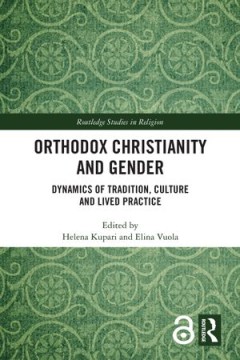
Orthodox Christianity and Gender: Dynamics of Tradition, Culture and Lived Pr…
The Orthodox Christian tradition has all too often been sidelined in conversations around contemporary religion. Despite being distinct from Protestantism and Catholicism in both theology and practice, it remains an underused setting for academic inquiry into current lived religious practice. This collection, therefore, seeks to redress this imbalance by investigating modern manifestations of O…
- Edition
- -
- ISBN/ISSN
- 1351329863
- Collation
- -
- Series Title
- -
- Call Number
- 300
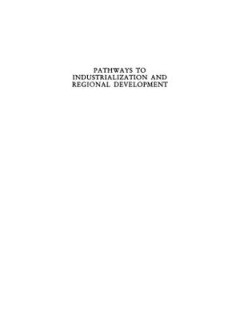
Pathways to Industrialization and Regional Development
The world has seen a shift in socio-economic relations, in the patterns and processes of industrialization and regional development. The social regulation of the economic order, flexible production organization and industrial district formation have brought periods, places and pathways to the heart of economic debate. Pathways to Industrialization and Regional Development provides a platform fr…
- Edition
- -
- ISBN/ISSN
- 9780203995549
- Collation
- -
- Series Title
- -
- Call Number
- 300

Sharing Lives: Adult Children and Parents
Sharing Lives explores the most important human relationships which last for the longest period of our lives: those between adult children and their parents. Offering a new reference point for studies on the sociology of family, the book focuses on the reasons and results of lifelong intergenerational solidarity by looking at individuals, families and societies. This monograph combines theor…
- Edition
- -
- ISBN/ISSN
- 9781317297642
- Collation
- -
- Series Title
- -
- Call Number
- 301 SZY s

A Sensory Education
A Sensory Education takes a close look at how sensory awareness is learned and taught in expert and everyday settings around the world. Anna Harris shows that our sensing is not innate or acquired, but in fact evolves through learning that is shaped by social and material relations. The chapters feature diverse sources of sensory education, including field manuals, mannequins, cookbooks and fla…
- Edition
- -
- ISBN/ISSN
- 9781000182156
- Collation
- -
- Series Title
- -
- Call Number
- 301 HAR s
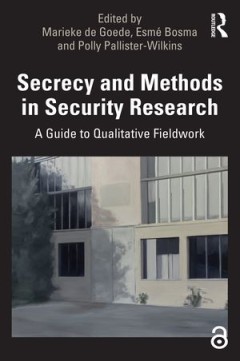
Secrecy and Methods in Security Research: A Guide to Qualitative Fieldwork
This book analyses the challenges of secrecy in security research, and develops a set of methods to navigate, encircle and work with secrecy.How can researchers navigate secrecy in their fieldwork, when they encounter confidential material, closed-off quarters or bureaucratic rebuffs? This is a particular challenge for researchers in the security field, which is by nature secretive and difficul…
- Edition
- -
- ISBN/ISSN
- 9780429675355
- Collation
- -
- Series Title
- -
- Call Number
- 320 SEC s
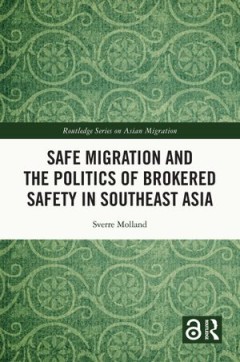
Safe Migration and the Politics of Brokered Safety in Southeast Asia
The book investigates how the United Nations, governments, and aid agencies mobilise and instrumentalise migration policies and programmes through a discourse of safe migration. Since the early 2000s, numerous non-governmental organizations (NGOs), UN agencies, and governments have warmed to the concept of safe migration, often within a context of anti-trafficking interventions. Yet, both the p…
- Edition
- -
- ISBN/ISSN
- 9781000430745
- Collation
- -
- Series Title
- -
- Call Number
- 305.8
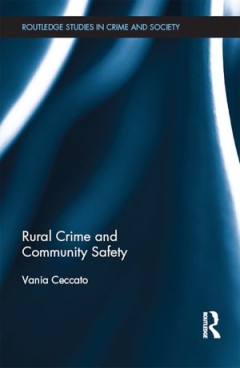
Rural Crime and Community Safety
Crime is often perceived as an urban issue rather than a problem that occurs in rural areas, but how far is this view tenable? This book explores the relationship between crime and community in rural areas and addresses the notion of safety as part of the community dynamics in such areas.Rural Crime and Community Safety makes a significant contribution to crime science and integrates a range of…
- Edition
- -
- ISBN/ISSN
- 9781135005559
- Collation
- -
- Series Title
- -
- Call Number
- 364 CEC r
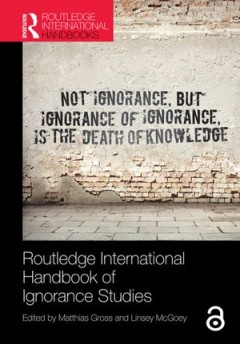
Routledge International Handbook of Ignorance Studies
Once treated as the absence of knowledge, ignorance today has become a highly influential topic in its own right, commanding growing attention across the natural and social sciences where a wide range of scholars have begun to explore the social life and political issues involved in the distribution and strategic use of not knowing. The field is growing fast and this handbook reflects this inte…
- Edition
- -
- ISBN/ISSN
- 9781317964674
- Collation
- -
- Series Title
- -
- Call Number
- 301 ROU r
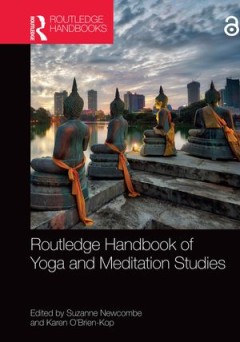
Routledge Handbook of Yoga and Meditation Studies
The Routledge Handbook of Yoga and Meditation Studies is a comprehensive and interdisciplinary resource, which frames and contextualises the rapidly expanding fields that explore yoga and meditative techniques. The book analyses yoga and meditation studies in a variety of religious, historical and geographical settings. The chapters, authored by an international set of experts, are laid out acr…
- Edition
- -
- ISBN/ISSN
- 9781351050746
- Collation
- -
- Series Title
- -
- Call Number
- 305.8 ROU r
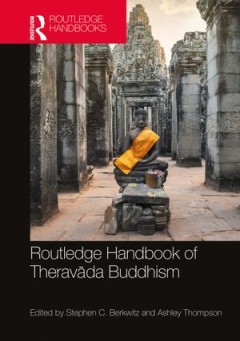
Routledge Handbook of Theravāda Buddhism
Among one of the older subfields in Buddhist Studies, the study of Theravāda Buddhism is undergoing a revival by contemporary scholars who are revising long-held conventional views of the tradition while undertaking new approaches and engaging new subject matter. The term Theravāda has been refined, and research has expanded beyond the analysis of canonical texts to examine contemporary cultu…
- Edition
- -
- ISBN/ISSN
- 9781351026642
- Collation
- -
- Series Title
- -
- Call Number
- 305.8 ROU r
 Computer Science, Information & General Works
Computer Science, Information & General Works  Philosophy & Psychology
Philosophy & Psychology  Religion
Religion  Social Sciences
Social Sciences  Language
Language  Pure Science
Pure Science  Applied Sciences
Applied Sciences  Art & Recreation
Art & Recreation  Literature
Literature  History & Geography
History & Geography